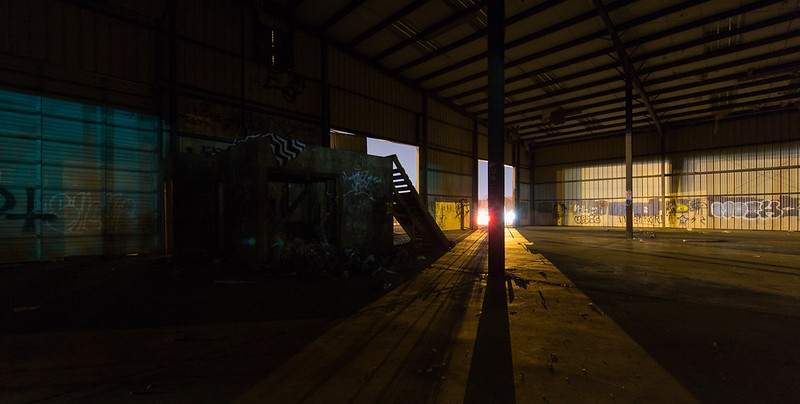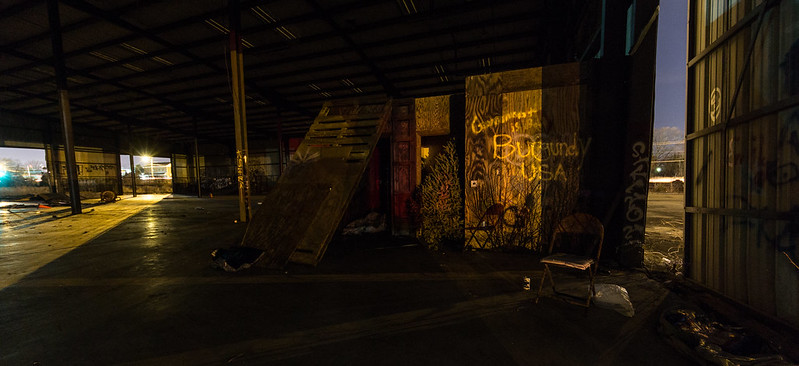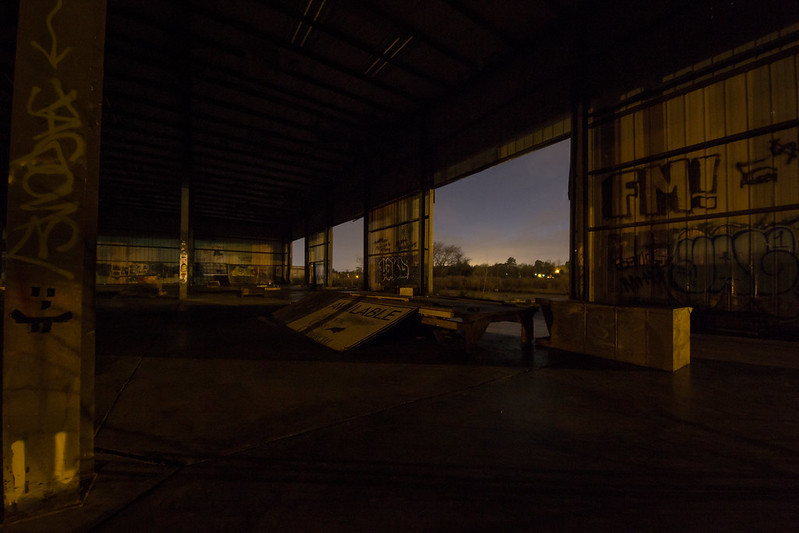



| Posted by siper Want a perfectly exposed long exposure every time? 1. Make sure your intervalometer is plugged in and ready to go 2. Switch your camera to Aperture Priority Mode. 3. Set your f-stop between f/8 and f/11, and set your ISO as high as necessary for a proper exposure on your light meter (AKA zero on your light meter). I set mine at about 10,000 because it’s a nice even number to work with. 4. Point your flashlight at your subject and focus accordingly 5. Turn your flashlight off and switch your lens to manual focus 6. Make a note of the suggested exposure time either in your viewfinder or the top-panel LCD display when you half-press your shutter. 7. Fire a test shot 8. If your test shot looks good, now we have some calculations to do. Let’s say my test shot required a shutter speed of 10 seconds at ISO12800 for a correct exposure. Now we’re going to divide the ISO while doubling the shutter speed to get down to an image that won’t be plagued with ISO noise. In this scenario, let's say our target is ISO200. After calculations, you end up with 620 seconds (11 mins). 9. Switch your camera to Bulb Mode, enter 11 minutes into your intervalometer, set your ISO to 200. 10. Trigger your shutter with your intervalometer There are also apps for Android and iPhone that will do step 8 for you. Just search for "exposure calculator." |
| Posted by Fbixz I like the way you explain this! I am worried about doing long shutters that are any longer than 30 sec. I feel like my sensor will get damaged. I shoot with nikon d3300. |
| Posted by Fbixz I like the way you explain this! I am worried about doing long shutters that are any longer than 30 sec. I feel like my sensor will get damaged. I shoot with nikon d3300. |
| This thread is in a public category, and can't be made private. |